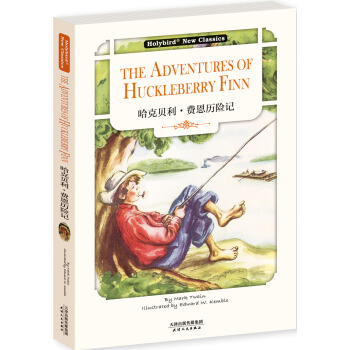

具体描述
编辑推荐
《哈克贝利·费恩历险记》之所以成为一部杰作,是因为作者完美展现了美国西部边疆文学的传统,不但展示出之前难以达到的想象力,而且使用了当地俗语,为二十世纪美国散文和诗歌提供了新的愉悦和能量源泉。本书为英文原版,同时提供配套英文朗读免费下载,详见图书封底博客链接。让读者在阅读精彩故事的同时,亦能提升英文阅读水平。
内容简介
《哈克贝利·费恩历险记》美国著名小说家马克·吐温代表作品,小说以哈克和吉姆的“逃离”为主要情节,哈克要逃离“文明”社会的虚伪与腐败,获得精神上的自由;吉姆要逃离蓄奴州,奔向自由州,获得身体与精神的自由,而展开的精彩故事。同时作者对作品的语言运用上颇具特色,在广泛采用美国南方方言和黑人俚语的基础上,经过精妙地提炼加工,形成了一种富于口语化特征的文学语言、简洁生动、自然含蓄,是英语文学的范本。
本书为英文原版,同时提供配套英文朗读免费下载,详见图书封底博客链接。让读者在阅读精彩故事的同时,亦能提升英文阅读水平。
The Adventures of Huckleberry Finn is a novel by Mark Twain, first published in the United Kingdom in1884 and in the United States in February 1885. Commonly named among the Great American Novels, the work is among the first in major American literature to be written throughout in vernacular English, characterized by local color regionalism. The book is noted for its colorful description of people and places along the Mississippi River. Set in a Southern antebellum society that had ceased to exist about 20 years before the work was published. It is told in the first person by Huckleberry “Huck” Finn, a friend of Tom Sawyer and narrator of two other Twain novels. It is a direct sequel to The Adventures of Tom Sawyer.
The Adventures of Tom Sawyer and Adventures of Huckleberry Finn have never lost their places as required reading in schools, and they remain templates for young adult fiction.
作者简介
马克·吐温(Mark Twain.1835~1910),美国批判现实主义文学的奠基人,著名小说家。马克·吐温是美国批判现实主义文学的奠基人,世界公认的短篇小说大师,被誉为“美国文学中的林肯”。他的创作大致可分为三个时期:早期作品表现了对美国民主所存的幻想,以短篇为主,幽默与讽刺结合,批判不足,作品有《竞选州长》、《高尔斯的朋友再度出洋》、《百万英镑》等;中期以长篇为主,讽刺性加强,重要作品包括《汤姆·索亚历险记》、《哈克贝利·费恩历险记》等;后期作品则由幽默讽刺转到愤怒的揭发、谴责、甚至有悲观的情绪,主要作品有《游记》等。其擅长使用幽默和讽刺,针砭时弊,毫不留情。他的作品对后来的美国文学产生了巨大深远的影响。
内页插图
目录
CHAPTER 1 /1
CHAPTER 2 /6
CHAPTER 3 /13
CHAPTER 4 /18
CHAPTER 5 /22
CHAPTER 6 /27
CHAPTER 7 /35
CHAPTER 8 /42
CHAPTER 9 /55
CHAPTER 10 /60
CHAPTER 11 /64
CHAPTER 12 /73
CHAPTER 13 /81
CHAPTER 14 /87
CHAPTER 15 /92
CHAPTER 16 /99
CHAPTER 17 /109
CHAPTER 18 /120
CHAPTER 19 /133
CHAPTER 20 /143
CHAPTER 21 /154
CHAPTER 22 /165
CHAPTER 23 /171
CHAPTER 24 /177
CHAPTER 25 /184
CHAPTER 26 /192
CHAPTER 27 /202
CHAPTER 28 /210
CHAPTER 29 /220
CHAPTER 30 /231
CHAPTER 31 /235
CHAPTER 32 /245
CHAPTER 33 /252
CHAPTER 34 /260
CHAPTER 35 /267
CHAPTER 36 /275
CHAPTER 37 /281
CHAPTER 38 /289
CHAPTER 39 /297
CHAPTER 40 /303
CHAPTER 41 /310
CHAPTER 42 /318
CHAPTER 43 /327
精彩书摘
You don’t know about me without you have read a book by the name of The Adventures of Tom Sawyer; but that ain’t no matter. That book was made by Mr. Mark Twain, and he told the truth, mainly. There was things which he stretched, but mainly he told the truth. That is nothing. I never seen anybody but lied, one time or another, without it was Aunt Polly, or the widow, or maybe Mary. Aunt Polly—Tom’s Aunt Polly, she is—and Mary, and the Widow Douglas is all told about in that book— which is mostly a true book—with some stretchers, as I said before.
Now the way that the book winds up is this: Tom and me found the money that the robbers hid in the cave, and it made us rich. We got six thousand dollars apiece—all gold. It was an awful sight of money when it was piled up. Well, Judge Thatcher, he took it and put it out at interest, and it fetched us a dollar a day apiece, all the year round—more than a body could tell what to do with. The Widow Douglas, she took me for her son, and allowed she would sivilize me; but it was rough living in the house all the time, considering how dismal regular and decent the widow was in all her ways; and so when I couldn’t stand it no longer I lit out. I got into my old rags, and my sugar-hogshead again, and was free and satisfied. But Tom Sawyer, he hunted me up and said he was going to start a band of robbers, and I might join if I would go back to the widow and be respectable. So I went back.
The widow she cried over me, and called me a poor lost lamb, and she called me a lot of other names, too, but she never meant no harm by it. She put me in them new clothes again, and I couldn’t do nothing but sweat and sweat, and feel all cramped up. Well, then, the old thing commenced again. The widow rung a bell for supper, and you had to come to time. When you got to the table you couldn’t go right to eating, but you had to wait for the widow to tuck down her head and grumble a little over the victuals, though there warn’t really anything the matter with them. That is, nothing only everything was cooked by itself. In a barrel of odds and ends it is different; things get mixed up, and the juice kind of swaps around, and the things go better.
After supper she got out her book and learned me about Moses and the Bulrushers, and I was in a sweat to find out all about him; but by and by she let it out that Moses had been dead a considerable long time; so then I didn’t care no more about him, because I don’t take no stock in dead people.
Pretty soon I wanted to smoke, and asked the widow to let me. But she wouldn’t. She said it was a mean practice and wasn’t clean, and I must try to not do it any more. That is just the way with some people. They get down on a thing when they don’t know nothing about it. Here she was abothering about Moses, which was no kin to her, and no use to anybody, being gone, you see, yet finding a power of fault with me for doing a thing that had some good in it. And she took snuff too; of course that was all right, because she done it herself.
Her sister, Miss Watson, a tolerable slim old maid, with goggles on, had just come to live with her, and took a set at me now with a spelling-book. She worked me middling hard for about an hour, and then the widow made her ease up. I couldn’t stood it much longer. Then for an hour it was deadly dull, and I was fidgety. Miss Watson would say, “Don’t put your feet up there, Huckleberry;” and “Don’t scrunch up like that, Huckleberry—set up straight;” and pretty soon she would say, “Don’t gap and stretch like that, Huckleberry—why don’t you try to behave?” Then she told me all about the bad place, and I said I wished I was there. She got mad, then, but I didn’t mean no harm. All I wanted was to go somewheres; all I wanted was a change, I warn’t particular. She said it was wicked to say what I said; said she wouldn’t say it for the whole world; she was going to live so as to go to the good place. Well, I couldn’t see no advantage in going where she was going, so I made up my mind I wouldn’t try for it. But I never said so, because it would only make trouble, and wouldn’t do no good.
Now she had got a start, and she went on and told me all about the good place. She said all a body would have to do there was to go around all day long with a harp and sing, forever and ever. So I didn’t think much of it. But I never said so. I asked her if she reckoned Tom Sawyer would go there, and she said, not by a considerable sight. I was glad about that, because I wanted him and me to be together.
用户评价
这本书的魅力很大程度上源于它对“局外人”视角的完美捕捉。主角的独特身份,让他得以跳脱出既定的社会框架,以一种近乎局外人的清醒视角去审视周围的一切。这种观察者和参与者的双重身份,使得他对世界的描绘既有亲历者的激情,又有旁观者的冷静。我特别欣赏作者在描写人与人之间关系时的细腻处理,尤其是那些非传统家庭关系和友谊的建立过程。它们没有被浪漫化,而是充满了试探、误解和最终的相互依赖,展现了人性中最脆弱也最坚韧的一面。每次读到那些关于忠诚和背叛的交锋,我都会感到心头一紧,因为这正是人性中最难解的课题。这本书教会了我,真正的道德准则可能并不存在于法律条文中,而是深藏在彼此真诚相待的那一瞬间。
评分从文学技巧的角度来看,这本书的语言运用达到了炉火纯青的地步。那种独特的南方白话,读起来韵味十足,节奏感极强,简直就是一场听觉的盛宴。我常常会不自觉地停下来,回味某一句精妙的譬喻,或者某个角色极富个性的口头禅。它成功地打破了严肃文学的高冷壁垒,用一种近乎口述历史的亲切方式,将深刻的主题传递给每一个人。更令人赞叹的是,尽管故事背景设定在遥远的过去,但其中探讨的人类普遍困境——例如身份认同、道德选择以及对体制的反叛——在今天看来依然具有惊人的现实意义。这绝非一本“老掉牙”的旧书,它是一部充满生命力的、不断与时代对话的经典文本。对我而言,它更像是一位老朋友,每次重读都能发现一些初次阅读时忽略的微妙之处。
评分我必须承认,初读这本书时,我一度被它略显松散的结构所困扰。它不像某些经典那样有着紧凑的、目标明确的情节线索,反而更像是一系列精彩的、甚至有些漫不经心的片段组合而成。然而,正是这种看似随性的流动感,才完美地捕捉了“在路上”的精髓。每一次的停靠、每一次的相遇,都像是命运之手推着主角进入了新的考验或新的顿悟。作者对于社会百态的刻画之辛辣,简直让人拍案叫绝,他用幽默甚至略带讽刺的方式,解剖了伪善、偏见以及那些根深蒂固的陈腐观念。这本书的伟大之处在于,它没有直接说教,而是通过一系列荒诞却又真实的故事,让读者自己去体会其中的荒谬。那些关于自由、关于良知的挣扎,被处理得如此自然,不矫揉造作,读完后让人久久不能平静,思考良多。
评分对我来说,这本书的阅读体验就像是一场漫长而又充满未知的河流漂流。你不知道下一个转弯会遇到什么:是宁静祥和的乡村风光,还是暗流涌动的危险陷阱。这种持续的悬念感,让阅读过程充满了紧张而又兴奋的期待。我特别着迷于作者对自然环境的细致描摹,那条大河本身就是故事中最重要的角色之一,它既是自由的象征,也是吞噬一切的未知力量。书中的节奏变化处理得非常高明,从舒缓的日常片段,到突如其来的冲突爆发,转换得自然流畅,牢牢抓住了读者的注意力。它不仅仅是关于一个男孩的冒险故事,它更是一部关于如何在一个充满虚伪和压迫的世界里,努力保持本真、寻找自我价值的史诗。读完后,我感觉自己仿佛也经历了一场精神上的洗礼,对“文明”和“野性”这两个概念有了全新的、更深层次的理解。
评分这本书的叙事腔调简直太迷人了,作者那种带着点儿孩子气的、却又洞察世事的笔触,让人仿佛真的回到了那个古老而又充满野性的密西西比河畔。每一个场景的描绘都栩栩如生,你几乎能闻到河水的潮湿气息,感受到阳光炙烤着皮肤的滚烫。那些形形色色的角色,每一个都像是从现实生活中走出来的,他们的对话充满了那个年代特有的俚语和质朴,读起来一点也不觉得累赘,反而增添了极大的真实感和趣味性。我尤其喜欢看主角面对困境时那种土法炼钢式的智慧和随机应变的能力,他总能用最意想不到的方式化险为夷。这不仅仅是一个关于逃离和冒险的故事,它更像是一面镜子,映照出那个社会最深层的矛盾和人性的复杂。每次翻开,我都忍不住想,如果我当时也在那条船上,会做出怎样的选择?这种强烈的代入感,是很多文学作品难以企及的。
评分京东次日达,周一买的周四才到,书质量不好,纸很透
评分奥斯丁的傲慢与偏见,凑单买的书。书外面有塑封。字体大小合适。送货速度快。很好的购书体验。
评分东西不错,孩子爱看,希望孩子能坚持读完,哈哈哈!
评分图片和排版都很好,让人想要读下去。
评分印刷质量很好,配合下载的音频一起使用,可以很快提高英语水平,但是小学生单独看的话,有点难度,可以家长陪着看
评分质量非常好,字也很清楚,时不时拿出来看一下
评分到货好快,上午下单,下午送货,太喜欢了!
评分听说这本书不错,买来看看,还行吧,看大家兴趣来买,毕竟不要浪费哈哈蛤哈哈嗨
评分外国文学经典,纯英文,练习英语……
相关图书
本站所有内容均为互联网搜索引擎提供的公开搜索信息,本站不存储任何数据与内容,任何内容与数据均与本站无关,如有需要请联系相关搜索引擎包括但不限于百度,google,bing,sogou 等
© 2026 book.idnshop.cc All Rights Reserved. 静思书屋 版权所有

![秘密花园:THE SECRET GARDEN(英文原版) [THE SECRET GARDEN] pdf epub mobi 电子书 下载](https://pic.tinynews.org/11798258/5639621fN0673a0d0.jpg)
![新东方 泡泡宝贝英语故事阅读2(含11本可点读的绘本+1本故事导读+1张多媒体光盘) [4-6岁] pdf epub mobi 电子书 下载](https://pic.tinynews.org/11821708/5655618cN3b3dc457.jpg)
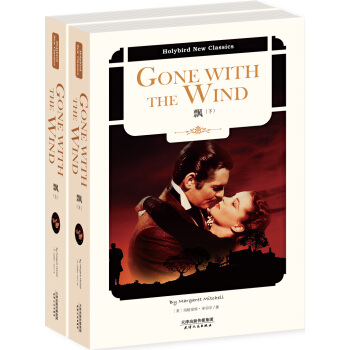
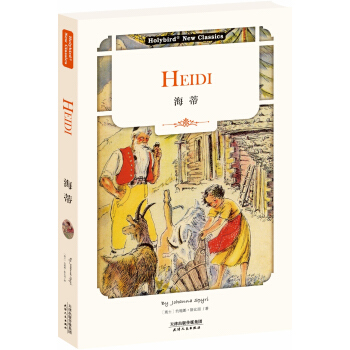


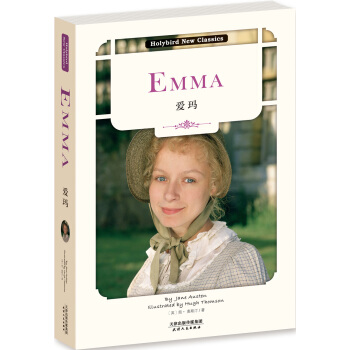
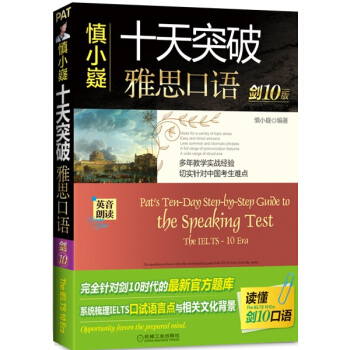
![绿山墙的安妮(英文原版) [Anne of Green Gables] pdf epub mobi 电子书 下载](https://pic.tinynews.org/11735642/55ac89a8N3763aa45.jpg)


![傲慢与偏见:PRIDE AND PREJUDICE(英文原版) [PRIDE AND PREJUDICE] pdf epub mobi 电子书 下载](https://pic.tinynews.org/11798275/563964d1Nc364db4a.jpg)
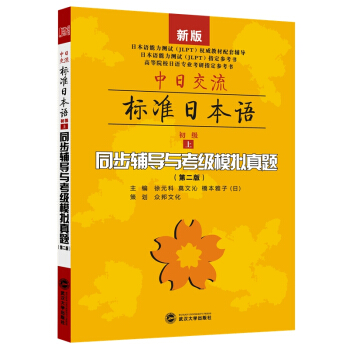

![柳林风声(英文原版) [THE WIND IN THE WILLOWS] pdf epub mobi 电子书 下载](https://pic.tinynews.org/11712500/55811455N74b72782.jpg)
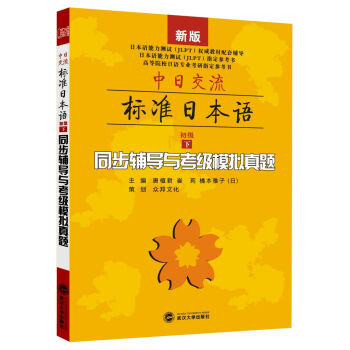
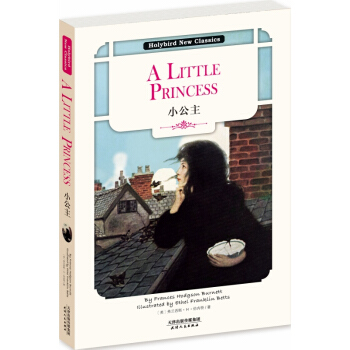
![小王子+老人与海+动物庄园 全英文原版经典名著系列读物(套装共3册) [The Little Prince+The Old Man and the Sea+Animal F] pdf epub mobi 电子书 下载](https://pic.tinynews.org/12009585/5a06d801N04a6e901.jpg)
![傲慢与偏见+海底两万里全英文版/世界经典文学名著系列 昂秀书虫(套装共2册) [Twenty Thousand Leagues Under the Sea+ Pride and P] pdf epub mobi 电子书 下载](https://pic.tinynews.org/12044943/5a0cececN6f8ade1b.jpg)
